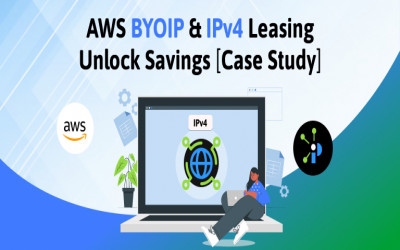What led to IPv4 becoming an essential commodity?
-
Posted at 2021-08-28 07:12:09

Humans would never have thought of the Internet being a commodity of their daily use. Billions of people are accessing the Internet at the very moment you are reading this. What are they accessing? There are millions of websites to access. Each website has its purpose of existing. Whichever website you access, they all have a unique IP address without which the website cannot exist.
Limited IPv4 Addresses:
IPv4 is the first Internet Protocol to use 32- bit addresses but generates only 232 (4,294,967,296) unique addresses. In 1981 IPv4 became the Standard Internet Protocol, and to date, it routes most of the website traffic. Moreover, many IPv4 addresses are reserved and inaccessible to the public for private network and multicast addressing.
Reasons why IPv4 addresses run out:
IANA (Internet Assigned Numbers Authority), along with five RIRs (Regional Internet Registries), is responsible for the management and distribution of IPv4. It is managed in two different classes; class A consists of 16 million addresses in each block and only 65,536 addresses in each block of class B.
In the 1980s, the Internet was just being introduced to people, and an abundant amount of IP addresses were allocated to the organizations. Each of the large companies was provided with class A address blocks. Each of them consisted of 16 million-plus addresses, which was more than required because class B address blocks were too small compared to their needs. Such inefficient distribution of addresses made the depletion rate much faster than anticipated.
In addition, millions of households have internet access, and the current increase in users in China and India has made IPv4 addresses more scarce.
IPv4: The New Necessary Commodity
The increasing demand and shortage of IPv4 addresses have led to an increase in the prices of IP addresses. Thus, scaling of new businesses is getting difficult over the days. Only 4% of the resources are available to administer. Multiple events occurred when organizations that included the US Department of Defence and Stanford University have returned blocks of IPv4 that were not in use.
As the stock of IPv4 addresses has nearly dried out, the cost per IP out of 16 million has increased by an exceptional margin. In 2014 it was $5 per IP; in 2017, it jumped to $10, and by February 2018, the surge hit $15. It went up to $20-$15 in 2019, and it is predicted that by 2025 the price will rise by 100%. This depletion of IPv4 addresses will make the telecom companies face difficulties while taking in new customers.
The solution to IPv4 Exhaustion:
By the end of 1980, there was a noticeable depletion in IPv4 addresses, so IETF launched IPv6 as a replacement for IPv4 in 1998. This new Internet protocol uses 128- bit addresses and is designed so that it doesn't possess the same limitations as the previous version. It grants 3.4x1038 web addresses and is split into two parts. The first 64 bit is the network component used in routing, and the second part of the 64 bit is the node component that identifies the interface's address.
IPv6, which is still in the early stages of deployment, cannot solve the huge shortage of IPv4 assets. However, the massive scarcity of IPv4 has given birth to a market opportunity in the lease market of IP addresses making the asset a marketable commodity.
Advantages of IPv6?
• With smaller routine tables and accumulation of plexus, the routing becomes more efficient
• Thanks to more streamlined packet headers that simplified packet processing
• The is no need for NAT(network address translation)
• Hosts have access to generate IP addresses
• Being a provider of much more number addresses, it is much more secure
Disadvantages of IPv6:
• Even in this current era, not all computers support IPv6.
• Direct communication between IPv4 and IPv6 is impossible, and hosts have to use special Gateway services.
• A notable amount of investment is required for IPv6 addresses making it harder for small businesses to acquire.
Technology has developed massively over the years, which resulted in extensive usage of the Internet. Due to this, IPv4 addresses are now scarce, and this situation calls for more advanced alternative protocols. Furthermore, very few IPv4 are still available for allocation because of the
IP leasing market, but the Exhaustion of IPv4 assets is inevitable.


.png)
